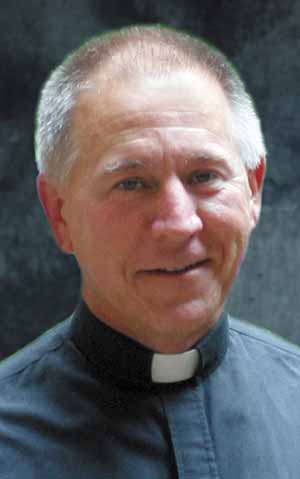By Fr. Bud Grant

Salvation History, the assertion that God works through history and natural events, is increasingly pertinent in light of record-breaking hurricanes and the sickening (and yes, record-breaking) mass killing in Las Vegas. This is not to say that murders or hurricanes are part of a Divine Plan. There is no plan; there is only love. Nature and history are, if you will, the media through which God relates to creation.
Still, many Christians cling tenaciously to the idea of a Divine Plan, albeit one beyond our ken. Granted, a “plan” is suggested in certain biblical verses; it is implicit in the very idea of an omnipotent God; and, frankly, it is perversely soothing to believe that Someone is driving the careening bus. Furthermore, that everything happens for a reason was doubtlessly the presupposition of at least a great many biblical writers as well as of most theologians through the ages. But imagine a defense lawyer making that case, imagine Judas appealing to that logic. Actually, you don’t have to; that is pretty much what Andrew Lloyd Webber’s character sings in “Jesus Christ Superstar:”
Oh my God I am sick
I’ve been used
And you knew
All the time
God I’ll never know
Why you chose me for your crime
Your foul bloody crime
So, we must reject the claim that history reveals a divine plan: it makes God a voracious beast and it eliminates morality: no one can be held accountable for performing pre-determined roles, not even mass murderers. It reduces humanity to actors, bereft of free will, miming scripts, pinioned by strings in the hands of a puppeteer who, incidentally, also controls the stage, props and special effects.
The same goes for natural disasters. Daniel Dennett, the brilliant, if caustic, atheistic philosopher of evolution, exploits the absurdity: did God really wipe out 97 percent of life on the planet with that comet just to prepare for the advent of humanity? Why not just start with humans? So, no, the death and destruction in Texas, Florida and the Caribbean — and Las Vegas — are not God’s “Plan.”
One way to avert this cul-de-sac of determinism is through an agnostic interpretation which reads Salvation History as the record of those who act because they BELIEVE that they are obeying God’s Plan for salvation. Chillingly, this applies to, say, the nearly mythic obscenity we call the Spanish Inquisition, the forced baptism of enslaved Native Americans, and the Crusades (Jihad by a Christian name) as well as the “subdue and dominate” theology that treats nature as nothing more than a resource. Secular historians of religion, sometimes scornfully, use this angle to disgrace Christianity as a benighted oppressor, persecutor and exploiter.
There’s another way: theologians of Salvation History apply an historical — or environmental — lens to examine this sublime question: what is the (hi)story of the relationship between God’s creation and God? How well (or badly) have we responded to God’s invitation to love God in one another through the undulating vicissitudes of history? People sin — often egregiously — the guilty and innocent alike suffer. Sin is intrinsically unjust. Out of love, people respond to the suffering of the innocent and guilty alike: rescuers don’t judge victims, they rescue them. Natural disasters are not God’s punishment of a recalcitrant human race, but simply the playing out of the laws of nature and/or the consequence of human mismanagement. God’s omnipotence does not mean that God plans, wills or causes suffering, but that God, often through us, alleviates suffering or, at the very least, shares it with us.
God’s will for us is that we should return God’s love by loving what God loves; one another and creation. The God that we know through the salvific act of Christ on the Cross is not found until we see, act, and become the loving, wounded, hand of God extended to God’s suffering creations.
(Father Bud Grant is a professor of theology at St. Ambrose University in Davenport.)











